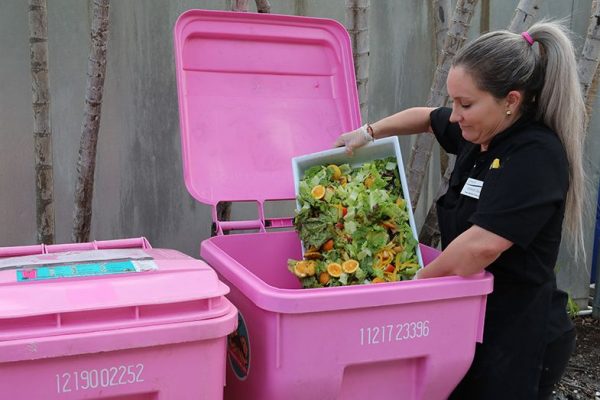The RE Bookstore: Myths vs. Reality
As a long line accumulates in the aisle waiting for their turn to pay, Upper School Bookstore Associate Mrs. Sara Scarfone quickly jots down each student’s name and their items. Processing over three hundred student transactions a day, the bookstore appears more prosperous than ever.
By offering a wide variety of healthy (and unhealthy) snacks and drinks, such as Pumpkin Pie PopTarts and Limon Pepino Gatorade, the bookstore has become a cornerstone of social life on the Upper School campus. Increasingly, however, we have been hearing complaints about the prices of items at the bookstore and the larger notion that it is profiting from students. It’s hard not to hear people groan on the senior deck when they forget a mask or need a snack during a free period before they head to the bookstore.
Students have been especially incensed by the pricing of water bottles and masks. According to the Director of Book and Online Sales, Mr. Arthur Hoffman, two-dollar Zephyrhills water bottles have been some of the most popular items this semester. With locks on most water fountains in the early weeks of the semester, however, bottle-less students were left with no option but to buy water bottles from the bookstore (RE has since removed the locks). Masks have also been required for all students throughout the semester.
As an anonymous senior complained in an interview, “When my parents received a statement from the business office, they felt that it was immoral to charge masks at $2 apiece amidst the pandemic.” Their par-ents thought it was wrong that the bookstore seemed to be selling a basic, required item at a large profit margin per unit.
We do think that the prices of basic necessities like masks and water should be reduced, in part because high prices for these items undermine the school’s mission of equity and inclusion. $2 per mask adds up for any student, but it especially impacts underserved and underprivileged students, and the counterargu-ment that they should simply bring their own masks from home is not sufficient.
We also believe the administration should consider providing more snack options free of charge. While there is always a small basket of fruit beside the cafeteria, students often need a more filling snack to main-tain their energy and focus throughout the day. Before the pandemic, RE used to provide sandwiches in the senior deck fridge. The school should consider bring-ing back this service, or perhaps something like it with less perishable items.
However, the common notion that the bookstore is a profit-seeking institution that takes advantage of students is faulty.
Contrary to popular belief, the RE bookstore actually breaks even on a balance sheet. Nearly all the money spent by students at the bookstore covers variable inventory and labor costs and fixed costs such as electricity and new technology developments (such as a new initiative that would allow students to use their IDs like debit cards to purchase items).
It is no accident that the bookstore breaks even. As Chief Financial Officer (CFO) of Ransom Everglades Mr. Geoffrey Bennett put it, the bookstore serves as an “auxiliary service” rather than an allocated part of our food budget. Like bus services or summer camps, these services are run at cost as extra perks that serve to benefit students and the community at large. And, unlike tuition or fundraising, it is not a source of net income for the school’s operations. According to Mr. Bennett, the bookstore actually “runs a loss more often than not.”
This brings us to the larger question: why is there such a wide gap between students’ perception of the bookstore and the reality of what it does? Simply speaking, it is due to a failure of communication. Now, this is not only the administration’s fault. There are two parts to effective communication: the sender and the receiver.Students are not good listeners.
Despite everything we are taught in class, most are very quick to jump to conclusions. They see a $2 mask and immediately assume malicious intent. On the other hand, the administration is not always very open about how things work, and students do not always feel comfortable going up to them and asking questions.
The key to solving this problem is transparency. If students could clearly see how things work and even have the opportunity to ask questions about how things work, they would be much less inclined to jump to cynical conclusions.
Student government should be the link between students and the administration that facilitates this transparency. Otherwise, we will get something like what we have seen in contemporary politics, where representative democracies, by not satisfying people’s need to feel heard, end up indirectly feeding conspiracy theories and populist movements.
We believe that, on a small scale, our school can model the sort of democratic community that will make students more understanding citizens of Ransom Everglades, Florida and the world. But it is incumbent upon everyone—students, the administration and SGA—to make greater efforts toward open communication.

Luca Campiani ‘22 is a Co-Editor in Chief and writer for The Catalyst. He covers the Features and News sections of the newspaper.

Quinn Lennon '22 is a Co-Editor in Chief and writer for The Catalyst, specifically covering sports news, features, and scores.

Gabriel Mora '22 is a Co-Editor in Chief and writer for The Catalyst. He covers news & multimedia content for the newspaper.

Sabrina Soto ‘22 is a Co-Editor in Chief and writer for The Catalyst. She covers the Arts and Opinions sections of the newspaper.


![Leyla Amjad 26: Being Muslim, its just really hard to find people who relate to you when they dont share [your] experiences.](https://recatalyst.org/wp-content/uploads/2024/02/IMG_9831-600x390.jpg)
